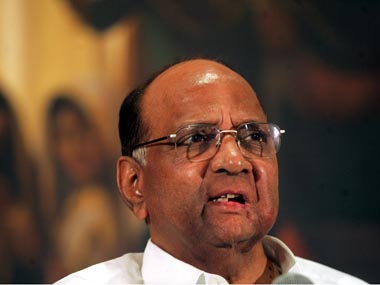Abhay Vaidya ‘Conflict of interest’ is a concept that is virtually non-existent in India or exists in its most meaningless forms. What is predominant is the ‘collusion of interests’ as seen from all the scams that have erupted in the country, the biggest of them being the 2G spectrum scam. The Adarsh housing scam in which politicians and bureaucrats flouted rules and got flats allotted to themselves and their relatives is a case in point. Veteran politician and Jalgaon MLA Sureshdada Jain’s recent arrest in the 2006 Gharkul Housing Scheme scam is another case. Jain, who was the housing development minister in the Shiv Sena-BJP government in the 1990s, has been accused by the police of favouring a builder and involvement in irregularities of Rs 29 crore. [caption id=“attachment_241281” align=“alignleft” width=“380” caption=“Eyebrows were raised when Pawar participated in a closed-door meeting on the Lavasa project. Reuters”]  [/caption] Senior Shiv Sena leader Manohar Joshi lost his chief ministership after he was indicted by the court for de-reserving a plot meant for a municipal school and favouring his son-in-law Girish Vyas’s construction firm. Vyas constructed the infamous Sun Dew apartments on that plot. There are scores of such examples, but our system won’t change because politicians and bureaucrats benefit from the big money corruption that emanates from a self-serving nexus of politicians, bureaucrats, builders and other vested interests. At the far end of the spectrum is the finicky example of the illustrious Bharat Ratna Sir M Vishweshvaraya who would blow out the government-sanctioned candles and light his own whenever he switched from official to personal work. He didn’t want to burn the government candles for his personal work. Last week on Friday, eyebrows were raised when Union Agriculture Minister Sharad Pawar participated in a closed-door meeting on the Lavasa project with Chief Minister Prithviraj Chavan and Hindustan Construction Company (HCC) chairman Ajit Gulabchand, who also heads the HCC subsidiary, Lavasa Corporation. The meeting was widely covered by the press and quoting unnamed officials, The Hindu reported that “the meeting was held to discuss the future of the project in the context of the SPA (Special Planning Authority)”. The SPA status was granted to Lavasa through a government notification in June, 2008 in a highly contentious manner. With this, Lavasa became the first private firm to be empowered with this status under the Maharashtra Regional and Town planning Act, 1956, which grants it wide-ranging powers. Two tribals from Pune district have filed a petition in the Bombay High Court challenging the granting of the SPA status to a private firm. Pawar’s presence at Friday’s meeting with Chavan and Gulabchand needs to be questioned given the history of this controversial lake-city project in the outskirts of Pune city and the involvement of the Pawar family in that project. As is well-known, the Lavasa Lake City project, which envisages the construction of a private township in the backwaters of the Varasgaon dam, became controversial not just because of serious environmental violations but primarily because of its association with the Pawar family. What is well-documented is that even before the HCC came into the picture, the project was given birth by businessman Aniruddha Deshpande, managing director of City Corporation, a firm with investments from the Pawar family. This was the same firm which was later embroiled in the IPL bidding scam. Lavasa Corporation, in its initial stages, had substantial investments from Pawar’s daughter Supriya Sule and her husband Sadanand. Pawar has acknowledged that it was he who identified the site for the Lavasa project. In another coincidence, Pawar’s nephew Ajitdada (now the deputy chief minister of Maharashtra) was the minister concerned when Lavasa Corporation signed a key agreement with the Maharashtra Krishna Valley Development Corporation for the construction of mini-dams in the backwaters of the Varasgaon dam. Given this history, probity in public life would demand that Pawar stay away from the Lavasa project. He ought to let the project find its own way through legal and bureaucratic hurdles as would be expected of other projects without any political patronage. The fact that Pawar held his meeting openly suggests that he gives a damn to conflict of interest issues, which anyways, matters least in this country.
Probity in public life would demand that Pawar stay away from the Lavasa project. He ought to let the project find its own way through legal and bureaucratic hurdles.
Advertisement
End of Article
Written by FP Archives
see more


)
)
)
)
)
)
)
)
)



